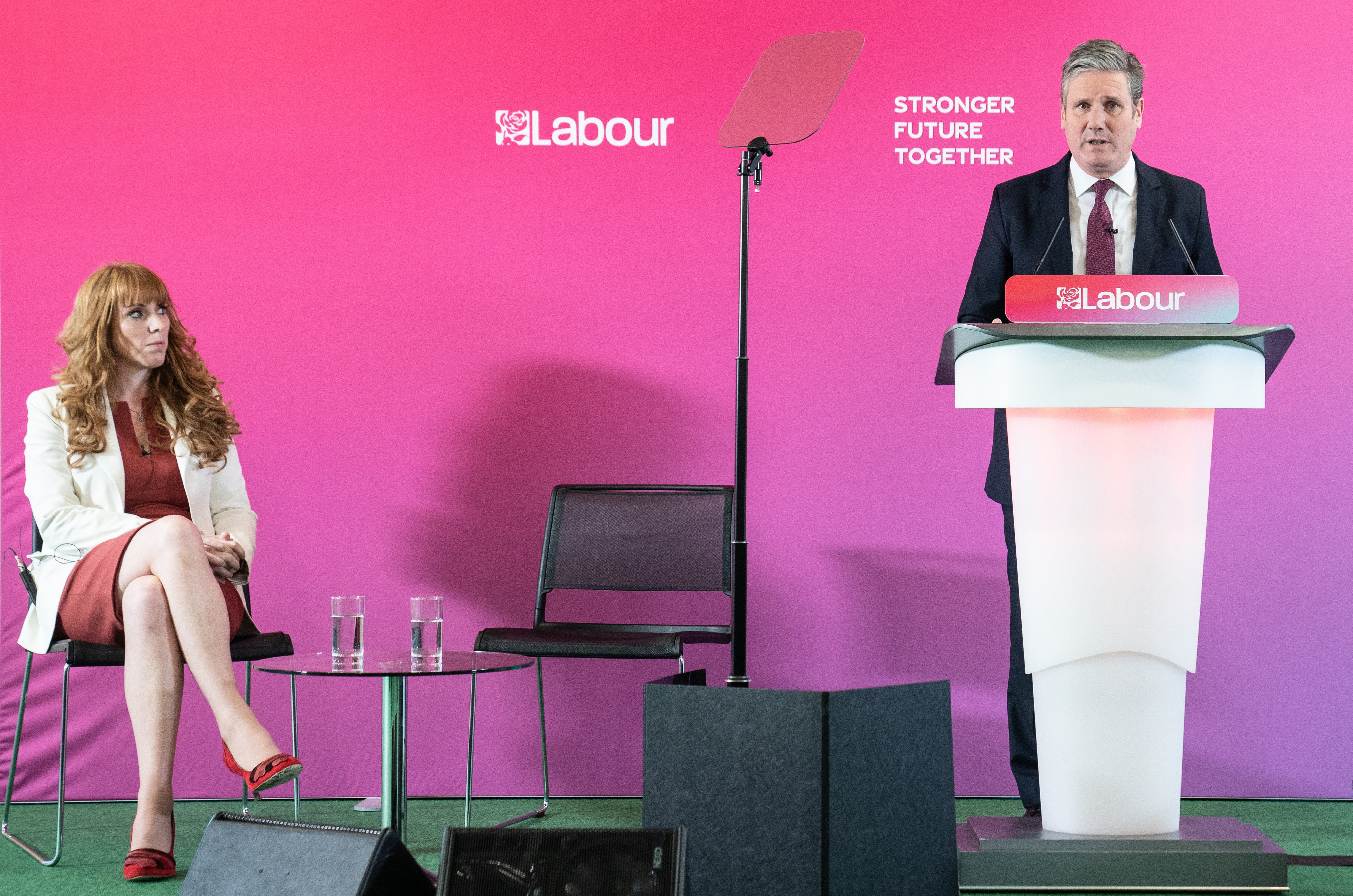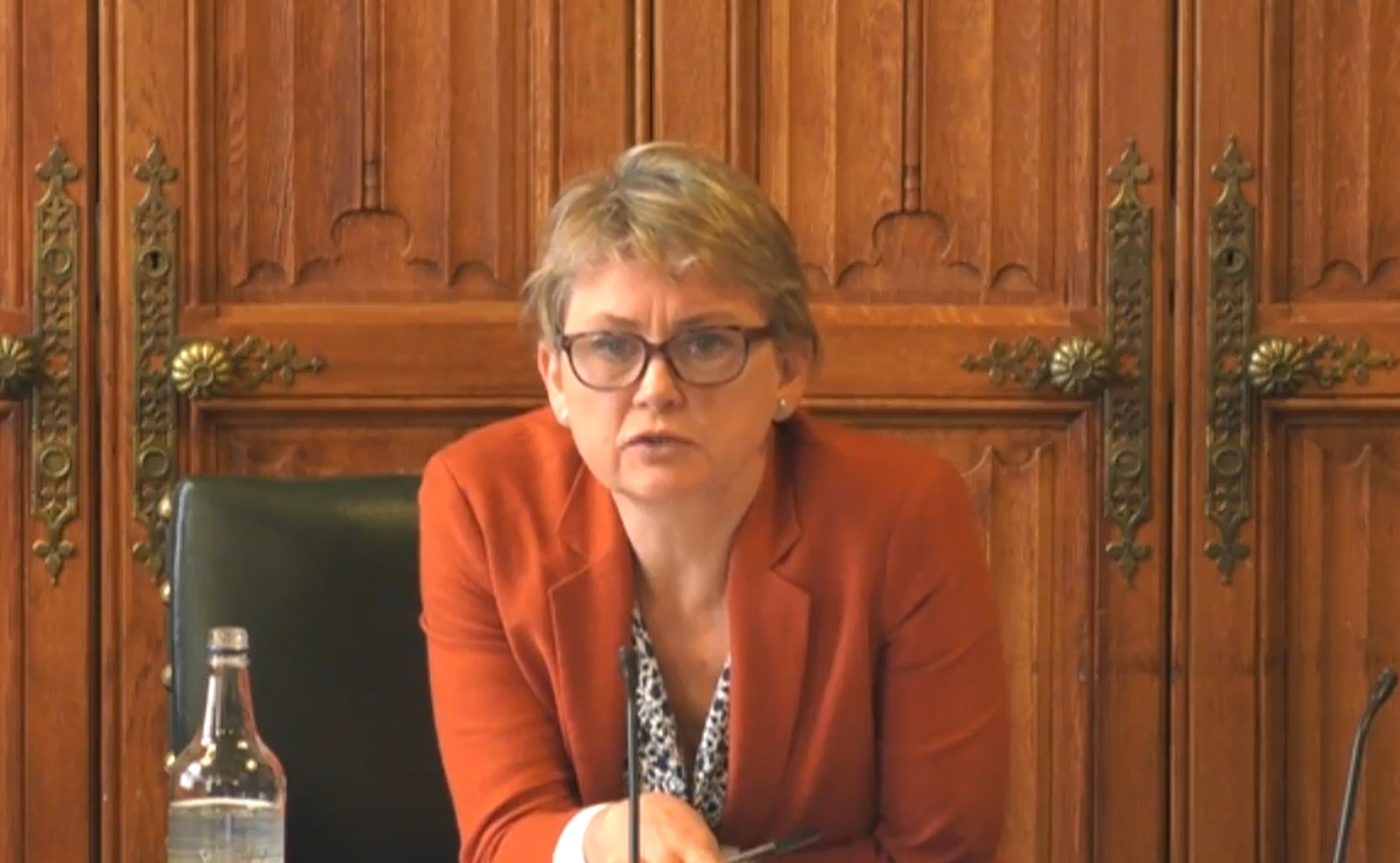Sir Keir Starmer’s necessary Labour reshuffle highlights discord with Angela Rayner
Surely it wouldn’t have killed the leader’s office to choose a quieter news day to build back better, albeit one that much nearer to Christmas, writes Sean O’Grady


A bad day to bury good news” might be a generous verdict on Sir Keir Starmer’s reshuffle of his top team. On the whole, the changes to the shadow cabinet were overdue and will strengthen, significantly, Labour’s claim to be a government-in-waiting. However, given the inevitable media focus on the response to the omicron variant, whatever immediate benefit that might have been gained has been somewhat overshadowed, if that’s the right expression.
Surely it wouldn’t have killed the leader’s office to choose a quieter news day to build back better, albeit one that much nearer to Christmas?
Or even some time in the new year – it’s not a “good look” for a progressive party to be firing party staff at such a juncture, albeit post-dated to February. Lacklustre as some of the front bench have been, there was no great urgency about making the changes, especially as the prime minister shows no sign of reversing some his more profound errors of judgement (such as Nadine Dorries’s inexplicable position in charge of a department she doesn’t understand, embarrassingly revealed at her inaugural Culture Select Committee appearance).
Still more curious was the role, if any, of Angela Rayner in this PR case study. At least, this time, her job wasn’t being chopped up behind her back, but the confusion about whether she was consulted about the new appointments made the exercise almost Corbynesque in its ineptitude. At various points during the day Ms Rayner appeared to know nothing about the “detail” of any reshuffle at the same time as the rumours were flying around Westminster.
On the other hand, the leader’s office, supposedly out to make a fool of her, expressed bemusement as, they say, she was indeed involved in the reshuffle and it was anyway her idea: Presentational chaos.
The explanation may be as simple as former shadow secretary of state for Young People and Democracy, Cat Smith tweeting out a resignation letter from a job that Starmer had actually asked her to continue – in truly The Thick of Itterritory.
Smith’s snarky farewell to Starmer contained a plea for Jeremy Corbyn to be reinstated as a Labour MP, which hints at some deeper reasons for her departure. In any case, she jumped the gun by publishing her own obituary, and disrupted the smooth media plan forged by the leader and deputy leader. Possibly.
Or else Rayner was blindsided again, or she and Starmer speak so little that even if they had a chat, most things they do are news to the other one.
At any rate, Rayner’s excellent ideas about cleaning up politics were submerged by the rubble of broken careers and her vision of good governance obscured by the ashes of others’ ambitions. As deputy leader, with her own mandate from the membership, she can’t realistically be sacked, but she can be undermined, and she is at liberty to think she could do a better job than Starmer. Their relationship may need work. Maybe John Prescott or Harriet Harman could advise.
As to the other personalties, one of the many drawbacks of being in opposition for more than a decade is that your front bench becomes progressively more obscure. Very obscure. Through no great fault of their own, most members of the shadow government aren’t even household names in their own kitchen, as the old joke goes, but some did have higher profile positions and failed to “punch through”.
Hence the demotion of Nick Thomas-Symonds as shadow home secretary (to international trade), and of Kate Green shadowing education; they both had barn-door size targets to aim at with Priti Patel and Gavin Williamson, but somehow they missed the many opportunities that their counterparts so selflessly handed to them. It is obvious that Yvette Cooper, the new shadow home secretary, will be an improvement facing Patel.
Traditionally, Lisa Nancy’s move from Foreign Office to Communities would be regarded as a retrograde move, but given she’ll be up against Michael Gove and the so-called Levelling Up agenda, it’s a far bigger job than her old one.

As an authentic northern MP from Wigan and a champion of towns, she should are the most of the opportunity. David Lammy is also rightly rewarded with the foreign office brief – a passionate and articulate defender of human rights.
Poor Ed Miliband, drafted in at a half hour’s notice to prime minister’s questions not long ago, seems to have spent too much time talking about nationalising energy companies and not enough buttering up the Confederation of British Industry (CBI). He was recognisable to the public, from his own unhappy time as Labour leader, but that fact merely points up the double-edged nature of fame: Anyone want a bacon sarnie? Sadly too, Lord Falconer, one of the few holy relics of the Blair era, couldn’t maintain his position in the shadow cabinet as shadow attorney general at the same time pursuing other interests.
The central weakness in Stamer’s shadow team was what it was (albeit to a greater extent) under Corbyn - that too much of the prime parliamentary talent was absent on other duties. Hilary Benn, Yvette Cooper and Chris Bryant, with government experience, recognition and above all ability greater than most of current front bench, were left running their Commons select committees – valuable work but not the best use of their formidable skill sets. (Benin’s Brexit Committee was abolished, prematurely, in January).
Now at least Yvette Cooper will be able to expose Patel’s multiple shortcomings as a minister, as she did to successive ministers as select committee chair, notably defenestrating Home Secretary Amber Rudd over the Windrush scandal in 2018.
Starmer, in the interests of party unity, might have tried to rehabilitate one of the few Corbynites who would be able to function in government, such as Dawn Butler, who went, rather summarily, in the initial cull in 2020. There are now no members of the Socialist Campaign Group of MPs in Starmer’s team. They might have some odd ideas, the left, but even Tony Blair found a spot for Clare Short.
Starmer should also, outside the shadow cabinet, find a way of better meshing Westminster activities with those of Labour’s powerful mayors, principally Dan Jarvis, south Yorkshire mayor and Barnsley Central MP, London mayor Sadiq Khan, Andy Burnham, the mayor of Greater Manchester, and of the party in Wales and Scotland.
Will Lucy Powell (Department for Digital, Culture, Media and Sport), Jim McMahon (Environment, Food and Rural Affairs), Steve Reed (Justice) and Louise Haigh (Transport) be the big beasts of a future Labour government (assuming they live long enough to serve in one)? If they follow the promising examples of Rachel Reeves and Rayner (who made a fine job of humiliating Johnson last time they meet over the dispatch box), then they will grow in their jobs and repay the confidence and faith placed in them.
If not, then they will sadly spend the best years of their political lives shuffling from one shadow portfolio to another without ever spending a single day so much as a parliamentary undersecretary of state, let alone a cabinet minister. It is a harsh fact of life that Therese Coffey’s special advisors have more power over the lives of working people and the poor than do the entire shadow cabinet.
Perpetual opposition was the fate of many of Labour’s shadowy half-remembered predecessors who served on the wrong side of history in the previous long years of Tory hegemony in the 1980s, 1950s and 1930s. That ought to be enough to spur them to greater, more real things.






Join our commenting forum
Join thought-provoking conversations, follow other Independent readers and see their replies
0Comments